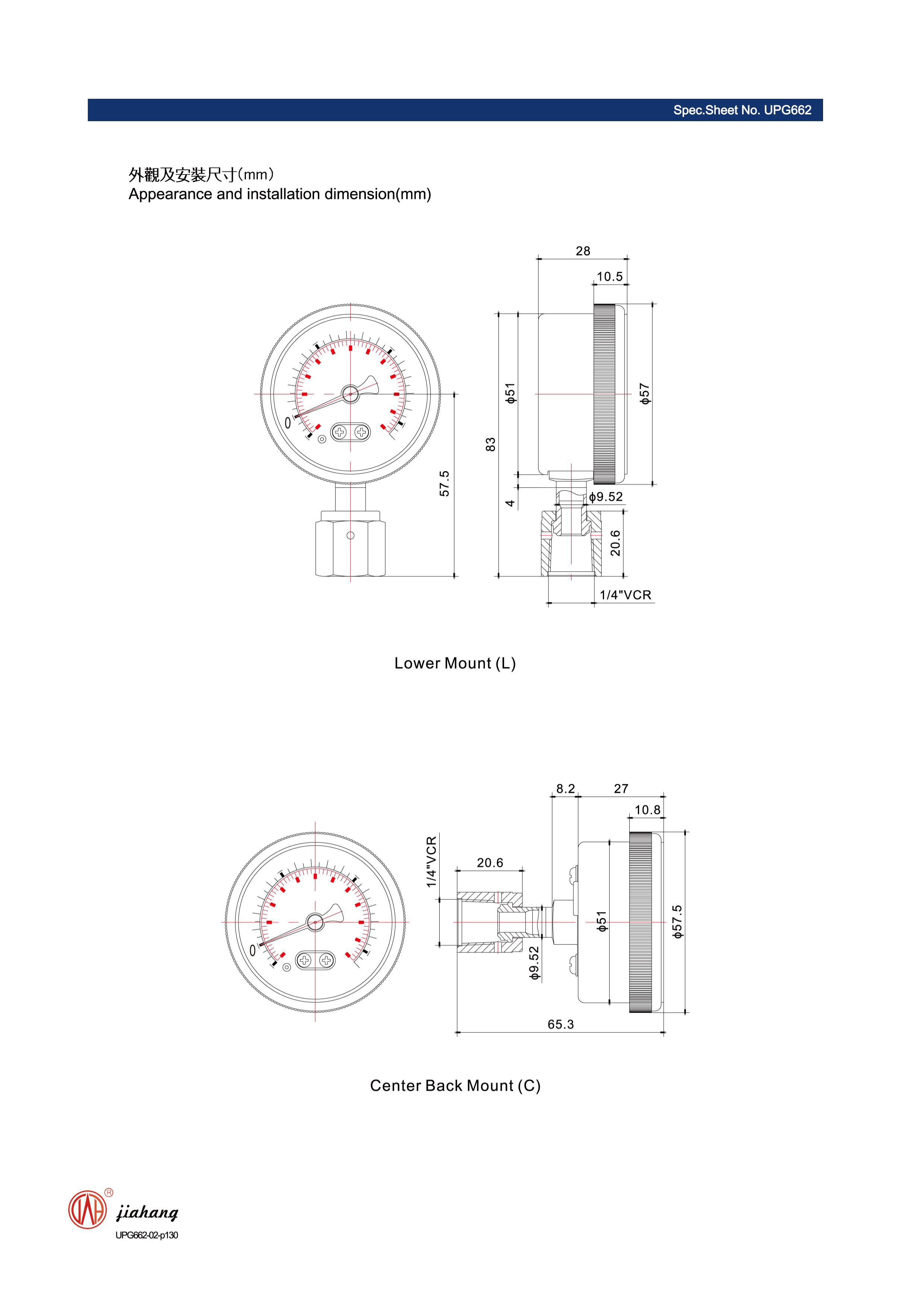
Окт . 17, 2024 03:20 Back to list
micro differential pressure gauge
Understanding Micro Differential Pressure Gauges
Micro differential pressure gauges are specialized instruments designed to measure small differences in pressure between two points. These devices are essential in a variety of applications, including HVAC systems, laboratory settings, cleanroom environments, and industrial operations where precise pressure measurement is critical. The ability to measure slight pressure variations enables operators to optimize processes, maintain system integrity, and ensure safety.
What is Micro Differential Pressure?
Differential pressure refers to the difference in pressure between two points in a system. When we talk about micro differential pressure, we are referring to measurements in the range of millimeters of water column (mmH2O) or less. This high sensitivity makes micro differential pressure gauges ideal for applications where even minor fluctuations in pressure can impact performance, such as in filtration systems, air flow monitoring, or fluid dynamics research.
How Do They Work?
Micro differential pressure gauges typically operate using a sensor that detects pressure variations. The sensor could be based on various technologies, including capacitive, piezoresistive, or strain gauge principles. These sensors convert pressure differences into electrical signals, which are then processed and displayed on a digital or analog readout. Some advanced gauges even come equipped with digital interfaces that allow for integration with data logging systems, providing real-time monitoring and analysis.
Importance in Different Industries
micro differential pressure gauge

In the pharmaceutical and biotechnology sectors, maintaining strict environmental conditions is crucial. Micro differential pressure gauges help monitor the pressure within cleanrooms, ensuring that contamination is kept at bay. They are also used in laboratory environments to precisely control experimental conditions.
In the HVAC industry, these gauges are valuable for monitoring air filters and ensuring they are functioning correctly. A significant drop in pressure can indicate a blockage, prompting maintenance before a system failure occurs. Similarly, in process industries, these gauges are used to regulate fluid flow and maintain optimal operating conditions, reducing waste and enhancing efficiency.
Key Features to Consider
When choosing a micro differential pressure gauge, various features should be considered 1. Measurement Range Ensure the gauge can measure the expected pressure difference in your application. 2. Accuracy Look for high accuracy and low error margins to guarantee reliable readings. 3. Response Time A quick response time is crucial for applications requiring immediate feedback. 4. Durability Depending on the environment, gauges should withstand factors like temperature fluctuation, humidity, and corrosive atmospheres. 5. Calibration Regular calibration is crucial for maintaining accuracy, so consider gauges that allow for easy calibration procedures.
Conclusion
Micro differential pressure gauges are indispensable tools in many fields that require precise pressure measurement. By understanding their functionality and importance, organizations can leverage these instruments to enhance operational efficiency, ensure safety, and maintain high standards of quality in their processes. As technology continues to evolve, these gauges are likely to become even more sensitive and user-friendly, further expanding their applications.
-
High-Precision 5 Valve Manifold Differential Pressure Gauge Suppliers
NewsApr.29,2025
-
High-Precision Diaphragm Vacuum Pressure Gauges Manufacturers & Quotes
NewsApr.29,2025
-
Omega Differential Pressure Gauges High Accuracy & Durability
NewsApr.28,2025
-
Low Pressure Differential Pressure Gauges Precision Solutions & Quotes
NewsApr.28,2025
-
Digital Diaphragm Pressure Gaauge Precision Measurement & OEM Quotes
NewsApr.28,2025
-
Differential Pressure Gauge China Price High-Accuracy & Best Quotes
NewsApr.28,2025
